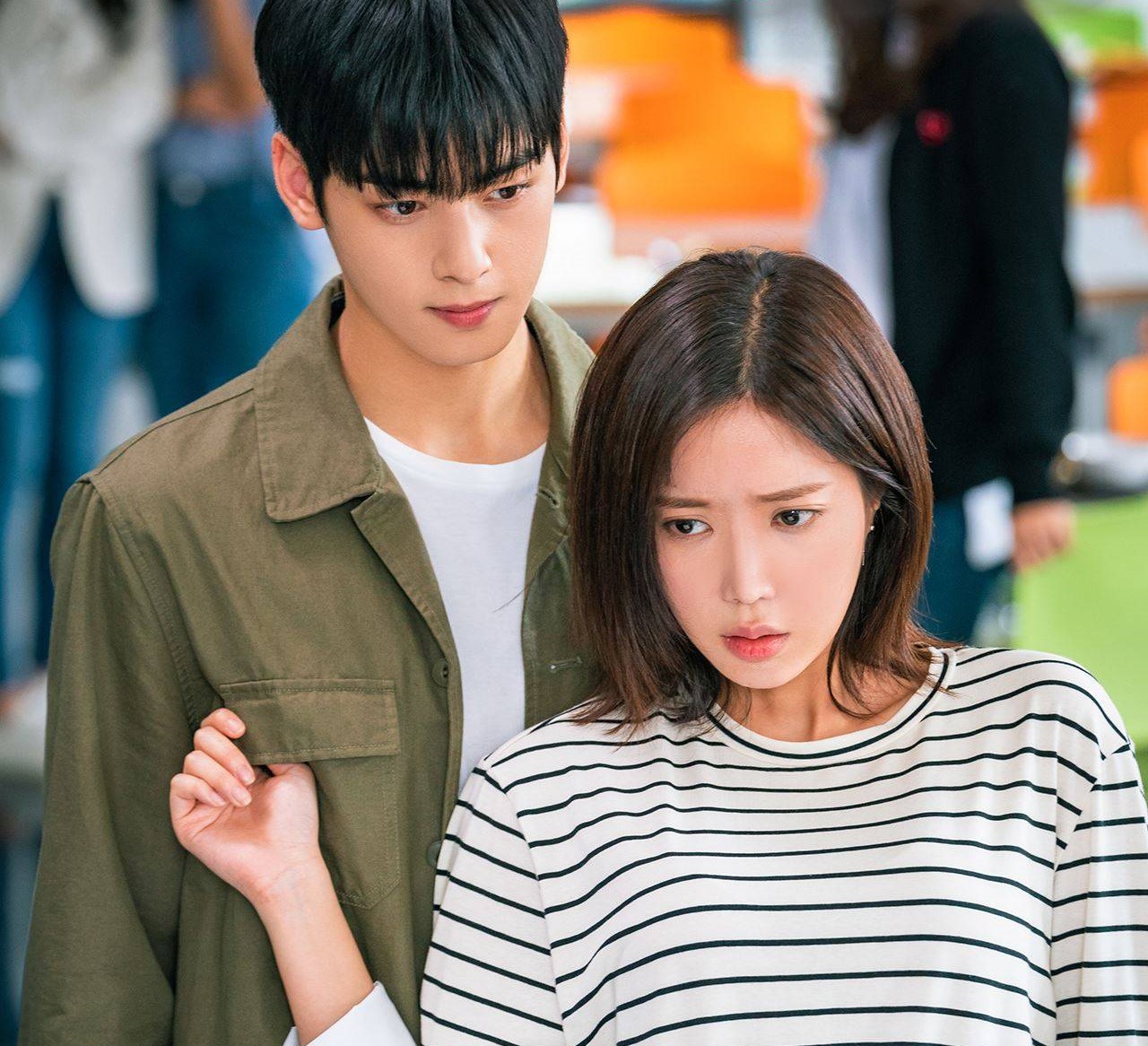The title of the show alludes to the Korean epithet ‘gangnammin’ (Gangnam beauty), a pejorative in South Korea for those who are deemed attractive because of multiple cosmetic surgeries

Photo: Courtesy of JTBC
In 2018 when My ID Is Gangnam Beauty aka Gangnam Beauty premiered, the K-drama grabbed attention all across the world for its interpersonal stance that beauty is skin-deep and that true beauty is rooted in embracing who you really are. The television series based on a webtoon of the same name explores the experiences of Kang Mi-rae (Im Soo-hyang), a college fresher who gets cosmetic surgery done to avoid bullies. Unfortunately, her decision flops when she is mocked for her plastic beauty. The title of the show alludes to the Korean epithet ‘gangnammin’ (Gangnam beauty), a pejorative in South Korea for those who are deemed attractive because of multiple cosmetic surgeries.
It’s a little challenging for me to comprehend the circumstances surrounding beauty concepts in that country. This topic has kind of yielded divisive results. While the Korean entertainment industry consistently produces content to criticize the unrealistic view of ideal beauty, Korean culture is overtly motivated to repair external looks, which has had deleterious repercussions on its people, especially the youth. I’ll try to look at some of these through the prism of My ID Is Gangnam Beauty.
While discussing this drama and Korean beauty standards, a Korean acquaintance of mine opined that, as a native, he believes everything happens for a reason. “The greater the obsession around beauty, the greater the pressure and proclivity of individuals to buy beauty products and turn to procedures like cosmetic and plastic surgeries, something that will continue to boost the Korean beauty business.” If you think about it, that could be true. After all, why did Kang Mi-rae in the show go under the knife? We see her as exceedingly insecure, viewing herself as a loser for being judged as ugly. From middle school through to high school, she suffered so much stress and criticism that all she wanted was to be accepted, which is why she got cosmetic surgery done before entering college.
So, one thing is certain: the pursuit of picture-perfect beauty is taxing. This is undeniably a plausible explanation for upheavals such as South Korea’s Free the Corset movement, in which women have risen against stringent beauty norms by removing the symbolic corset that represents make-up and makeovers. Consider the level of frustration that led women to shave their hair, abandon cosmetic products, and grow averse to plastic surgery. Does this remind you of Kang’s lines in the drama: “Why in the world do we have to be like this? We lose weight even when we aren’t overweight. We vomit and have plastic surgery as if we would die if we were not attractive. We evaluate people’s expressions and argue amongst ourselves. Why are we forced to be this way? I no longer want to do it. I truly, really don’t want to. From now on, I will think about what makes me happy.”
Gangnam Beauty is also a brilliant example of societal pressure, emotional scars, and insecurities. To round it off, it’s an extraordinary K-drama with a unique take on mental health. Jeanie Y. Chang, an Asian-American licensed clinician and mental health expert (who is passionate about K-dramas and employs them in her profession to give examples of mental health and help people understand mental health better), raised a very valid point in my recent interview with her. “We do have very high standards. I think, as real as it is, we see it in the K-dramas, and actually, I think that’s why I think K-dramas are beautiful: they help you understand mental health and well-being.” She explained that Korean society sees things like trauma, anxiety, peer pressure, and suicides because people there are used to them. “But what I want them to see is, why is it happening? They’re just going, ‘Yeah, we’re used to it,’ which is sad, right? But it’s understandable. But I don’t see a lot of ‘whys’ and the ‘why’ is what I look at because that’s what I do for a living. ‘Why are you not well?’ ‘Why are you anxious?’ ‘Why are you depressed?’ And then, ‘What to do about it?’”
I agree. And not just in South Korea, but in most countries mental health needs to be discussed and addressed. Gangnam Beauty, like many other K-dramas, teaches us the value of conversation. Talking about your feelings, being with someone, and expressing yourself may help in healing. The K-drama is also a great love story between Kang and Do Kyung-seok (Cha Eun-woo), a brilliant, wealthy and handsome college student who also harbors psychological wounds from his unhappy family life. When these two people come closer, they grow emotionally and mentally while confiding in and opening up to each other more. In addition to this, their romance is amazing to behold. One of the sequences that makes you fall in love with the narrative and the protagonists is when Do puts on his school uniform and takes Kang to their middle school, to fulfil her high-school wish. The nuances of their relationship, their love, and how they evolve throughout the drama are eloquently portrayed and are worth a watch.
Tulum-origin electronic music festival made its India debut earlier this year with artists like Mind…
Features ‘Marry My Husband,’ ‘Queen of Tears,’ ‘Lovely Runner,’ ‘Mr. Plankton,' and other stories that…
The tabla maestro was admitted to a hospital in San Francisco on Sunday, Dec. 15,…
The tabla maestro was admitted to a hospital in San Francisco, while his sister Khurshid…
Here’s a list of some of the best video games that 2024 has to offer,…
Mumbai composer is joined by vocalist Junaid Ahmed, with lyrics by Rishi Upadhyay and guitars…